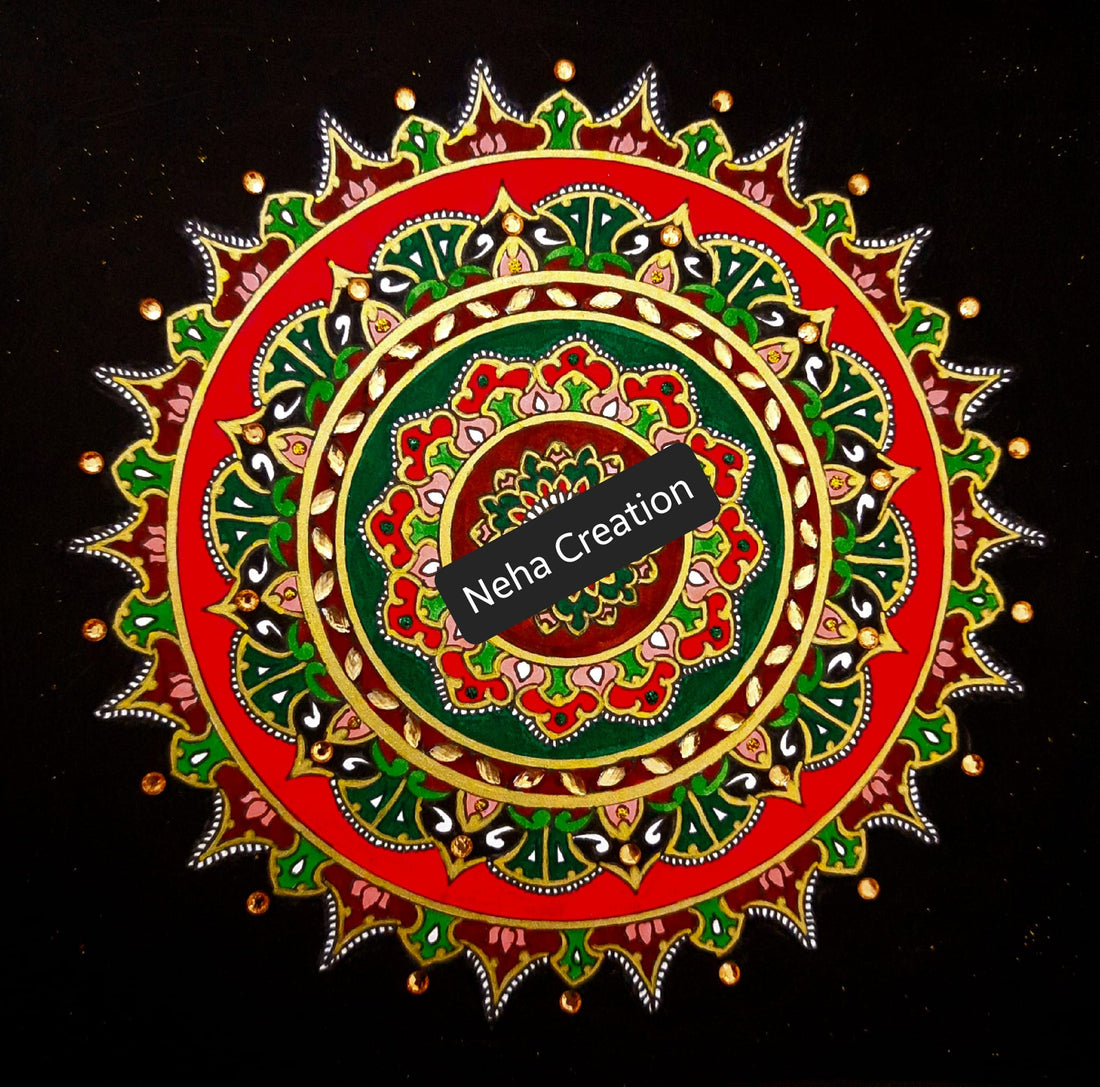In today’s world of instant gratification, the concept of patience, presence, and progress often gets lost. Yet, ancient traditions remind us that real transformation doesn’t happen overnight—it unfolds over time, with intention and awareness. One of the most powerful symbols of this truth is the mandala.
Mandalas are more than intricate designs. They are sacred representations of time, space, and consciousness. And when combined with a 40-day spiritual journey, they become tools for deep, lasting inner transformation.
Let’s explore how mandalas represent time, the mystical importance of 40 days, and how this path can transform your life from the inside out.
The Mandala: A Symbol of Time, Eternity, and Cycles
The word mandala means “circle” in Sanskrit, and its circular form is deeply symbolic. Circles are timeless. They have no beginning or end—just like the cycles of life, nature, and spiritual evolution.
From ancient Tibetan monks to Native American shamans, mandalas have been used as spiritual tools to represent the passage of time, seasons of change, and the eternal rhythm of the universe.
Key Meaning of Mandala in Time Context:
-
The Center symbolizes the starting point—your inner self or divine spark.
-
The Expanding Patterns reflect the unfolding of time—each line, color, or layer marking your growth, awareness, and transformation.
-
The Outer Ring represents completion—a cycle fulfilled, wisdom integrated.
In this way, a mandala becomes a visual calendar of your soul's journey.
The Sacred 40-Day Journey: Why 40 Days?
Across cultures and spiritual systems, 40 days holds sacred significance. It’s seen as the minimum time required to shift energy, change habits, and spiritually realign.
Examples from history and spirituality:
-
In the Bible, Jesus fasted for 40 days in the wilderness.
-
In yoga, it is believed that practicing something for 40 days rewires your subconscious mind.
-
In Ayurveda, healing protocols are often followed for 40 days.
-
In Indian rituals, a sadhana (spiritual practice) is often done for 40 days to activate inner shifts.
Why 40? Because science and spirituality both agree: it takes time to break old patterns and plant new ones. A mandala-based 40-day journey is a powerful container for personal evolution.
Mandalas + 40 Days = Transformation
Imagine committing to 40 days of mandala art, meditation, and self-reflection. Each day becomes a small step, a dot on your spiritual canvas. By day 40, you haven’t just drawn a mandala—you’ve become the mandala.
Here’s how this works:
1. Day 1–10: Awareness and Intention
In the first 10 days, you become aware of what needs to change. Maybe it’s releasing fear, overcoming self-doubt, or reclaiming creativity. Your mandala reflects this process—starting from the center, the seed of intention is planted.
2. Day 11–20: Resistance and Breakthrough
The middle phase is the hardest. This is when your old habits fight back. Your lines may feel off, your patience tested. But this is the sacred tension of transformation. You keep showing up, and your mandala teaches you discipline, surrender, and trust in time.
3. Day 21–30: Expansion and Flow
You begin to feel lighter. Ideas flow. Emotions stabilize. Your art becomes more confident. You’re not just creating—you’re connecting. This phase brings clarity, and your mandala now reflects inner harmony and creative expansion.
4. Day 31–40: Completion and Integration
By day 40, you’ve completed your mandala. You’ve not only built a pattern—you’ve rewired your inner world. The mandala becomes a visual journal of your 40-day spiritual evolution. You feel more whole, grounded, and alive.
Why Mandalas Are Time Capsules of the Soul
Each mandala you create during this sacred time is like a spiritual timestamp. It reflects your mood, energy, and mindset from that moment. When you look back on your mandalas, you don’t just see designs—you see a timeline of your transformation.
They become:
-
Visual affirmations of growth
-
Healing records of emotional shifts
-
Symbols of resilience and surrender
In a way, mandalas are like sacred mirrors showing how you evolved over sacred time, not clock time.
How to Start Your 40-Day Mandala Time Journey
Starting is simple, but the commitment is powerful. Here’s a guide to begin:
Step 1: Set a Clear Intention
What do you wish to transform in 40 days? Confidence? Peace? Healing? Let this intention guide your mandalas.
Step 2: Choose Your Medium
You can use pen and paper, colored pencils, digital tools, or even canvas. You don’t need to be an artist—your intention is what gives the mandala power.
Step 3: Create One Mandala Daily
Even a small circle with patterns is enough. Some days may be abstract, others intricate. Let it flow. Trust the process.
Step 4: Journal With Your Mandala
After each mandala, write a few lines about how you feel. What came up? What did you release or receive?
Step 5: Reflect on Day 40
Display your final mandala. Compare it with Day 1. Notice the colors, details, and emotions. A transformation has occurred—and your mandalas prove it.
Mandala and Time: A Meditation in Every Moment
In essence, mandalas teach you to be present. Each line, dot, and curve is a reminder that life unfolds slowly and intentionally. By honoring 40 days of sacred time, you learn that true change isn’t a rush—it’s a rhythm.
As the mandala circle completes, you too feel complete. You’ve walked the spiral of transformation—day by day, moment by moment.
Conclusion: Become the Mandala, Embrace Time
Time is sacred. And when combined with mandala creation, it becomes transformational. The 40-day mandala journey is not just about creating beautiful art—it’s about becoming who you truly are, step by step.
So, if you’re feeling stuck, overwhelmed, or disconnected, start small. Draw one circle. Set one intention. Begin one day.
Because in that one simple act, you step into the eternal time of the soul—and that’s where miracles happen.



